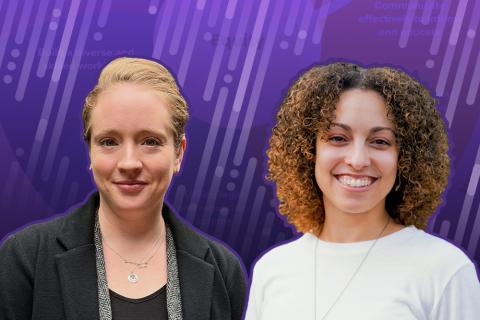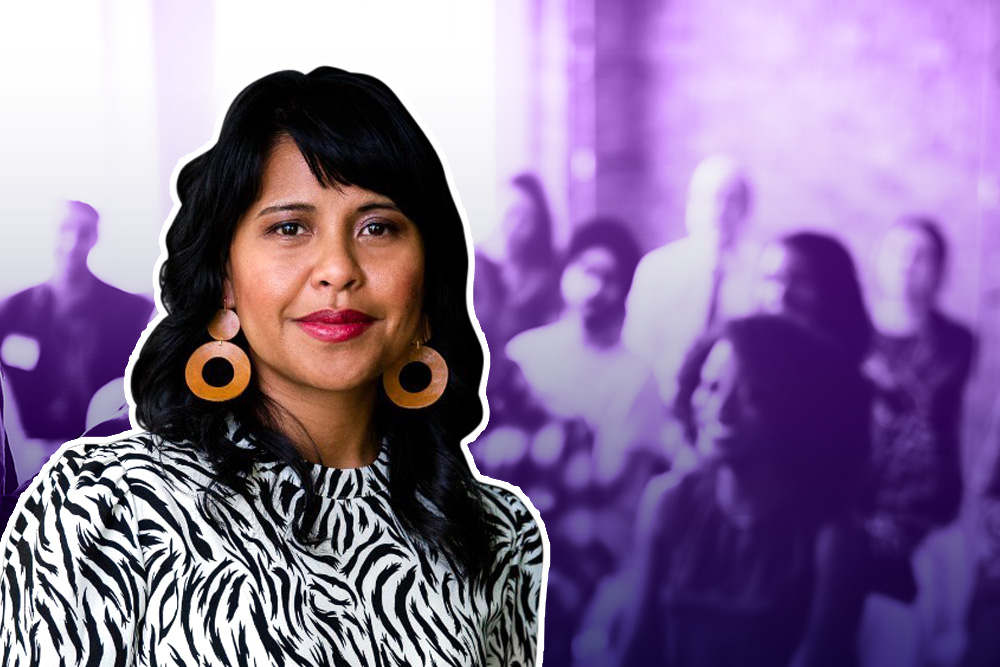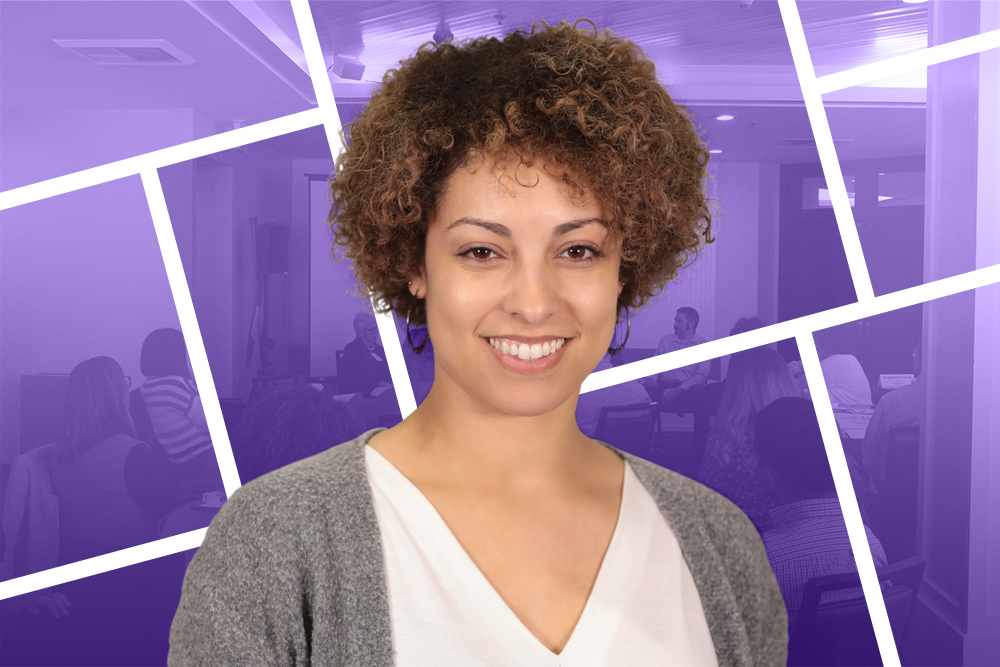
Jessica Nye (left) and Hallie Pritchett (right).
In response to the many changes in public health since the onset of the COVID-19 pandemic, the Northwest Center for Public Health Practice (NWCPHP) created Essentially Public Health (EPH), a three-part training series that focuses on the foundations of public health and health equity.
EPH is a virtual learning series that explores core elements of public health work – assessment, policy development, and assurance – as they relate to the 10 Essential Public Health Services. Sessions are co-taught by Barbara Obena and Hallie Pritchett.
To better serve public health agencies across the Northwest, NWCPHP is developing multiple ways to meet the needs of a variety of learners and organizations. Currently, there are virtual and live EPH offerings, and a self-paced version will be available next summer. The new People of Public Health podcast series was developed to support this learning material.
The first in-person EPH session was conducted this summer with San Juan County Health and Community Services, in San Juan County, WA. We sat down with Hallie Pritchett, who led the seminar, to discuss the training’s impact.
“I think of EPH as a high-level view of Public Health 101,” Hallie explained. “Each section is heavily structured around health equity, and the focus is on providing basic skills that newer practitioners can apply directly to their work.”
“Post-Covid, we have a lot of new practitioners who don’t have a formal background in public health. Because of this, they don’t always see the full scope and interconnectedness of the field. This training is a great opportunity for organizations to level-set and ensure all their staff understand how essential public health is in every facet of our lives.”
Jessica Nye, the Community Health Services Manager for San Juan County Health and Community Services, echoed Hallie’s sentiments. “We have a mix of long-standing practitioners working alongside folks who are new to the field. Many of our newer staff joined our department during the pandemic, and their only experience in the field is pandemic-based. We wanted to use this training as an opportunity to define the role of public health in our community and ensure everyone on our team was on the same page.”
While the session lasted only one day, it still covered the same core components and learning goals as in the virtual EPH training, plus a bit more. “This was an all-day training, and the unique thing about it is that we were able to tailor it to their department’s specific needs,” Hallie said. “We drilled down on staff’s respective roles and explored how those roles relate to each other. We discussed siloing issues, communications and internal collaborations, and examined real-world problems their staff are confronting in the community.”
“This was a really positive, fun experience,” Hallie noted. “They had a great team who were very engaged with each other. They listened to those with long-standing experience in the field while making room for newer staff. They did a great job sharing opinions and exploring problems, and we had some very exciting and engaging conversations.”
“We’re very happy with Hallie and the training,” Jessica added. “She provided a great baseline understanding of public health that was useful for our newer staff members. We had very stimulating conversations around health equity and disparities, and how they applied in our community. There was a nice mix of instruction and hands-on, interactive activities that brought our entire staff together.”
Learn more about the Essentially Public Health training and if you’re interested in scheduling an in-person session for your organization, email Christine Ector to discuss options.


